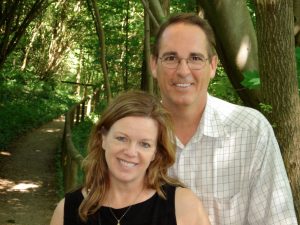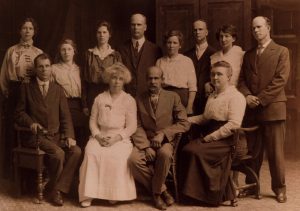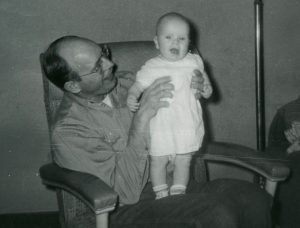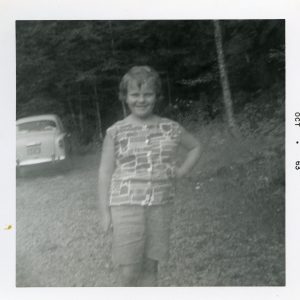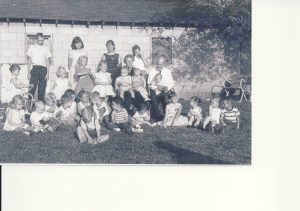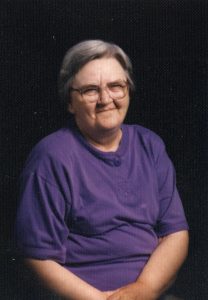 We knew each other before we were born. Or so it seems. The way we think alike, our inherent understanding of each other, our imprint on each other’s souls has been there since the beginning of time. Our families lived three miles apart from each other when we were growing up in a little farming town in Ohio. I met Paul when we were in 4th grade – or rather he was in 4th grade and I was in the 6th grade. I am one year older than he is, but was two years ahead in school. I was a writer for our elementary school newspaper and I was assigned to write about Mrs. Benson’s 4th grade class. My younger sister was in her class and so was Paul. Paul was going to be President of the United States, he said with certainty. I noticed and recognized him. He was the other part of me.
We knew each other before we were born. Or so it seems. The way we think alike, our inherent understanding of each other, our imprint on each other’s souls has been there since the beginning of time. Our families lived three miles apart from each other when we were growing up in a little farming town in Ohio. I met Paul when we were in 4th grade – or rather he was in 4th grade and I was in the 6th grade. I am one year older than he is, but was two years ahead in school. I was a writer for our elementary school newspaper and I was assigned to write about Mrs. Benson’s 4th grade class. My younger sister was in her class and so was Paul. Paul was going to be President of the United States, he said with certainty. I noticed and recognized him. He was the other part of me.
In high school, we were both trumpet players in the band. I was first chair and he was second chair, chairs we won by audition with the band director. Paul had an opportunity to challenge me for first chair, but declined to do so. He quickly became my best friend. I helped him find dates for the homecoming dance and he made me laugh. I was not too surprised when he asked me to the spring dance at our school. It was a bit weird to go with my best friend. But even though I was very young – and he was even younger, I knew I wanted to be with him as much as possible. He was my sure thing. He had answers to questions I hadn’t even asked yet. That school dance sealed our relationship for all time.
We married six and one-half years later on St. Patrick’s Day. Father O’Toole blessed our marriage that day – with an Irish blessing. The road did rise to meet us – but it was a rocky one to start with.
Before we left for our honeymoon, we opened gifts at the wedding, sorting them as we opened as to which ones would accompany us to Texas in our Plymouth Horizon and which ones would be stored. Immediately after the wedding, we left Ohio and headed for Texas for a six-month internship job for Paul. I had already graduated from college, but Paul had two more years of school. On our wedding night, we stayed at a hotel one hour outside of our hometown in the direction of Texas. The next morning, we woke early to start the long drive and found that our car window had been smashed in and all of our packed wedding presents taken. We filed a police report, patched the car window and continued our journey.
We arrived in Houston, took a few days to move into our apartment, and then Paul started his job. In his first week of work, a car ran into Paul in our Horizon as he was turning right at an intersection. I walked over to the accident scene after Paul called me from a pay phone. He was not physically hurt, but our car appeared to be totaled. As our car was removed from the scene by a tow truck, Paul and I walked back to our apartment to figure out how to put the pieces back together. It seemed we needed to cling to each other, as our few material goods were taken from us and all of our family was all back in Ohio. When Paul held me and we discussed our options, I knew we would be OK. What God has joined together, let no man pull apart.
A few weeks later, as Paul and I were getting ready for bed, we heard a man outside making quite a bit of noise. It seemed like an argument at first, then as we listened we could tell that someone was in immense pain. Paul ventured outside and I stayed by the balcony to our apartment to watch for his safety, but also to be close to a phone to call for help. Paul found two men and a two-year old baby that had been in a motorcycle accident. The men, with the baby, had stolen a motorcycle and were traveling at a high rate of speed when an elderly gentleman pulled out at an intersection and clipped the bike. Both men were severely injured – with body parts scattered at the scene. The baby was intact, but crying uncontrollably.
I went with Paul to try to figure out how to help. I tried to keep the baby still and assessed for injuries. Paul directed the emergency workers to the injured men and the older gentleman in shock. We returned to our apartment hours later, but didn’t sleep that night. We longed for the security of being with extended family and the comforts of home.
But all we had was each other and the faith that we could get through adversity together. Adversity is like a strong wind. It tears away from us everything but the things that cannot be torn. God is still holding us in the palm of His hand.
©Copyright 2016. All rights reserved. KimberlyNixon.com

